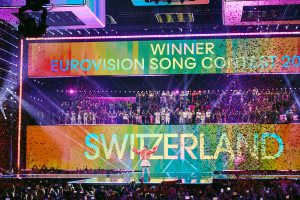An Introduction to Euro 2024: Germany to Host Europe’s Finest
The UEFA European Football Championship 2024 will be the seventeenth edition of the tournament, bringing together the European elite teams. In today’s article, we go through the tournament’s history, where it will be hosted, the tournament schedule, highlight the ongoing qualification phase, all about the ticket sales, and the city ambassadors and celebrities.

The most successful team in the European Championship, Germany, will be the host for the 2024 edition of the games. The tournament is scheduled to begin on 14 June, and the final will be played on 14 July. Twenty-four teams will contest for the title, with only the host nation automatically qualified as hosts; the qualification games are still ongoing and are proving popular with football betting fans.
We expect it to be a thriller after the multi-national 2020 edition sets the standard to become one of the best-organised events. I’ll take you through all the essential details you need to know on the field, highlighting the current qualification campaign and how the event is being organised off the pitch.
The UEFA Euro 2024 will be held in German territory for the third time and the second time as a unified Germany, with West Germany home for the 1988 edition. They were among the hosts for the Euro 2020, with four games played in Munich. The edition will be the first time the reunified Germany will, with East Germany hosting for the first time, featuring Leipzig as a host city.
The football tournament will follow the same format as the previous two editions, with twenty-four teams contesting. The last time the host nation won the Euros was back in 1984 when France beat Spain to clinch the title; thus, there will be a lot of optimism for Germany to end the over four decades of host underperformance.
Germany last won the title in 1996, which by their standards is quite a long time, and given the automatic qualification, they should have enough time to get their rhythm right.
On This Day at Euro 1996 Germany and England met in the semi-finals of Euros at Wembley Stadiumpic.twitter.com/vtqj2tSuc3
— Classic Football Shirts (@classicshirts) June 26, 2020
The previous edition of the European Championship set to be held in 2020 was delayed and extended to 2021 due to the novel Coronavirus. Italy are the reigning Champions, who beat the hosts England on penalties at Wembley Stadium.
History of the UEFA European Championship
The first edition of the European games was held in 1960, taking over from the numerous regional tournaments that were irregular and not well established. The Soviet Union were the inaugural winner in the tournament that was held in France.
The 1964 edition was held in Spain, which won by beating the defending Champions, the Soviet Union, at the Santiago Bernabeu. The next notable edition was in 1980, when the tournament grew exponentially and increased the number of teams to eight. For the first time, they included the group stage in the beginning phase of the competition. There were two groups, with the winners of the group contesting in the final while the runners-up were involved in the third-place play-offs.
In 1996, there was an advancement to sixteen teams, and the number of groups increased to four, with four in each group. The top two teams in each group, which accumulated to eight teams, qualified for the knockout phase that began in the quarter-finals. The number of countries increased further to twenty-four with the event’s rise in popularity, making it one of the most watched and heavily contested with some of the best teams in the world.
The 2016 and 2020 editions had six groups, with the four best filling up to sixteen slots. The editions, including the Euro 2024, begin the knockout phase from the Round of sixteen.
| List of Previous Euros Winners | ||
|---|---|---|
| Team | Titles | Finals |
| Germany | 3 | 6 |
| Spain | 3 | 4 |
| France | 2 | 2 |
| Italy | 2 | 2 |
| Czechoslovakia | 1 | 2 |
| Portugal | 1 | 2 |
| Denmark | 1 | 1 |
| Greece | 1 | 1 |
| Netherlands | 1 | 1 |
| Soviet Union | 1 | 1 |
Below is a summarised European Championship winners list grouped by the edition, the host nation and the scores of the finals.
| European Championships 1960 – 2020 | ||||
|---|---|---|---|---|
| Year | Winners | Runners-up | Result | Host Nation |
| 2020 | Italy | England | 1 – 1 (3 – 2 penalties) | Europe |
| 2016 | Portugal | France | 1 – 0 | France |
| 2012 | Spain | Italy | 4 – 0 | Ukraine Poland |
| 2008 | Spain | Germany | 1 – 0 | Austria Switzerland |
| 2004 | Greece | Portugal | 1 – 0 | Portugal |
| 2000 | France | Italy | 2 – 1 (Golden goal) | Belgium Netherlands |
| 1996 | Germany | Czech Republic | 2 – 1 (Golden goal) | England |
| 1992 | Denmark | Germany | 2 – 0 | Sweden |
| 1988 | Netherlands | Soviet Union | 2 – 0 | West Germany |
| 1984 | France | Spain | 2 – 0 | France |
| 1980 | West Germany | Belgium | 2 – 1 | Italy |
| 1976 | Czechoslovakia | West Germany | 2 – 2 (5 – 3 penalties) | Yugoslavia |
| 1972 | West Germany | Soviet Union | 3 – 0 | Belgium |
| 1968 | Italy | Yugoslavia | 1 – 1 (2 – 0 replay) | Italy |
| 1964 | Spain | Soviet Union | 2 – 1 | Spain |
| 1960 | Soviet Union | Yugoslavia | 2 – 1 (extra time) | France |
Euro 2024 Germany – Why Germany?
In 2017, only Germany and Turkey met the 3 March deadline for official bids to host the Euro 2024 tournament, with Germany being the favourite. Initially, Germany had plans to host the Euro 2020 event, which later became a multi-national tournament. During the selection process, the UEFA Executive Committee of twenty members conducted a secret ballot, where the UEFA President would have the tie-breaking vote if needed. Of the twenty members, one was absent, and two were ineligible to vote; however, this was irrelevant as Germany secured a decisive victory with twelve votes to Turkey’s four.
🚨 BREAKING 🚨
Germany has been awarded hosting rights of Euro 2024. #Euro2024 #Germany2024 pic.twitter.com/psfC5dwCVn
— Half Time Cuppa (@Halftime_Cuppa) September 27, 2018
Previous Instances of Germany Hosting Football Events
Germany was the host country for the 1974 and the 2006 World Cup, the UEFA Euro 1988, and the 2005 FIFA Confederation Cup. In the women’s version of the sport, they hosted the 2011 FIFA Women’s World Cup, the 1989,1995, and the 2001 UEFA European Women’s Championship.
Euro 2024 Economic and Social Impact
The Euro 2024 has set up an ESG Environmental, Social, and governance strategy. The strategy’s main aim is to impact the world through sport as a driving force to enhance sustainable development in Germany and Europe at large to ensure the effect on the environment doesn’t affect the upcoming generations. It will be a great place to launch such a noble course as such a colossal event brings lots of stakeholders, fans, and investors, with the audience expected to have a significant effect.
The UEFA Executive Committee established the ESG strategy was released one year ahead of the tournament and has eleven areas of action backed by twenty-eight topics, forty-eight targets, and eighty-three key performance indicators. The strategy focuses on:
• Reducing the impact on the environment.
• Investing in climate funds.
• Preventing and fighting discrimination.
• Advocating for physical activity.
• Promoting solidarity within the European nations to enhance sports.
• Adopting transparent and responsible conduct.
• Sharing knowledge and good practices.
• Cooperating and innovating with the cities.
According to UEFA’s event social responsibility strategy, Germany offers multiple benefits and optimal settings for achieving exceptionally sustainable outcomes. Due to Germany’s strategic position in Europe and its well-developed train system, the event will promote environmentally friendly transportation.
The nation also boasts excellent pre-existing facilities, such as airports and Bundesliga-used stadiums with EMAS certification, eliminating the need for significant new investments. The host cities can also draw upon their prior experience and know-how from 2006 and 2011. Ultimately, the focus on sustainability will be central to the tournament, supported by proactive local governments and a community dedicated to responsible practices.
Euro 2024 Host Cities and Venues
There are ten host cities: Berlin, Cologne, Dortmund, Dusseldorf, Frankfurt, Gelsenkirchen, Hamburg, Leipzig, Munich, and Stuttgart. Here is a detailed list of the Stadiums, their capacities, the home teams, and the games that will be played there, pasting this data up with some of the most significant occasions that have taken place in the arena.
Berlin – Venue: Olypiastadion Berlin
Capacity: 70,000
Home Team: Hertha Berlin
Olympiastadion Berlin 🇩🇪 Beautiful stadium 🏟️ The home of Hertha Berlin 🔵⚪️ pic.twitter.com/pfZw7t075B
— Jacob (@JacobRedLFC) September 17, 2023
Notable History: • Hosted the 2006 FIFA World Cup finals • 2015 UEFA Champions League finals
| EURO 2024 Matches | |
|---|---|
| Date | Match |
| 15/06 | B1 vs B2 |
| 21/06 | D1 vs D3 |
| 25/06 | D2 vs D3 |
| 29/06 | Round of 16 |
| 06/07 | Quarter Finals |
| 14/07 | Final |
Cologne – Venue: Cologne Stadium
Capacity: 47,000
Home Team: FC Koln
Notable History: • 2020 UEFA Europa League Finals
| EURO 2024 Matches | |
|---|---|
| Date | Match |
| 15/06 | A3 vs A4 |
| 19/06 | A2 vs A4 |
| 22/06 | E1 vs E3 |
| 25/06 | C4 vs C1 |
| 30/06 | Round of 16 |
Dortmund – Venue: BVB Stadion Dortmund
Capacity: 66,000
Home Team: Borussia Dortmund
😍 Las noches europeas en el BVB Stadion Dortmund 😍#UCL pic.twitter.com/BSK9tvbR4a
— Liga de Campeones (@LigadeCampeones) February 18, 2020
Notable History: • Hosted 2001 UEFA Cup final
| EURO 2024 Matches | |
|---|---|
| Date | Match |
| 15/06 | B3 vs B4 |
| 18/06 | F1 vs F2 |
| 22/06 | F1 vs F3 |
| 25/06 | D4 vs D1 |
| 29/06 | Round of 16 |
| 10/07 | Semi-final |
Dusseldorf – Venue: Dusseldorf Arena
Capacity: 47,000
Home Team: Fortuna Dusseldorf
Notable History: • Hosted 1988 UEFA European Championship group games (former Rheinstadion)
| EURO 2024 Matches | |
|---|---|
| Date | Match |
| 17/06 | D3 vs D4 |
| 21/06 | E2 vs E4 |
| 24/06 | B4 vs B1 |
| 01/07 | Round of 16 |
| 06/07 | Quarter-finals |
Frankfurt – Venue: Frankfurt Arena
Capacity: 46,000
Home Team: Eintracht Frankfurt
Notable History: • Hosted the 2020 UEFA Women’s Cup final • Hosted 2006 World Cup quarter-final
| EURO 2024 Matches | |
|---|---|
| Date | Match |
| 17/06 | E1 vs E2 |
| 20/06 | C2 vs C4 |
| 23/06 | A4 vs A1 |
| 26/06 | E2 vs E3 |
| 01/07 | Round of 16 |
Gelsenkirchen – Venue: Arena AufSchalke
Capacity: 50,000
Home Team: Schalke
Notable History: • Hosted UEFA Champions League final • Hosted 2006 World Cup quarter-final
| EURO 2024 Matches | |
|---|---|
| Date | Match |
| 16/06 | C3 vs C4 |
| 20/06 | B1 vs B3 |
| 26/06 | F2 vs F3 |
| 30/06 | Round of 16 |
Hamburg – Venue: Volksparkstadion Hamburg
Capacity: 50,000
Home Team: Hamburger SV
#UCL Matchday! 🙌🤩🎉
🇺🇦 @FCShakhtar 🆚 @FCPorto 🇵🇹 🏟 Volksparkstadion – @hamburg_de 📍@FCShakhtar_eng | @HSV | @visitHamburg pic.twitter.com/OMHWqIiJC6
— UEFA.com DE (@UEFAcom_de) September 19, 2023
Notable History: • Hosted 2010 Europa League final • 2006 World Cup quarter-final
| EURO 2024 Matches | |
|---|---|
| Date | Match |
| 16/06 | D1 vs D2 |
| 19/06 | B2 vs B4 |
| 22/06 | F2 vs F4 |
| 26/06 | F4 vs F1 |
| 05/07 | Quarter-final |
Leipzig – Venue: Leipzig Stadium
Capacity: 42,000
Home Team: RB Leipzig
Notable History: • Hosted 2006 World Cup group stage and Round of 16
| EURO 2024 Matches | |
|---|---|
| Date | Match |
| 18/06 | F3 vs F4 |
| 21/06 | D2 vs D4 |
| 24/06 | B2 vs B3 |
| 02/07 | Round of 16 |
Munich – Venue: Munich Football Arena
Capacity: 67,000
Home Team: Bayern Munich
Notable History: • Hosted 2012 UEFA Champions League finals • EURO 2020 Quarter Finals
| EURO 2024 Matches | |
|---|---|
| Date | Match |
| 14/06 | A1 vs A2 |
| 17/06 | E3 vs E4 |
| 20/06 | C1 vs C3 |
| 25/07 | C2 vs C3 |
| 02/07 | Round of 16 |
| 09/07 | Semi final |
Stuttgart – Venue: Stuttgart Arena
Capacity: 54,000
Home Team: VfB Stuttgart
Notable History: • Hosted 1998 European Cup final • 2006 World Cup third play-off
| EURO 2024 Matches | |
|---|---|
| Date | Match |
| 16/06 | C1 vs C2 |
| 19/06 | A1 vs A3 |
| 23/06 | A2 vs A3 |
| 26/06 | E4 vs E1 |
| 05/07 | Quarter-final |
Euro 2024 Tournament Schedule
Germany will host the highly anticipated Euro 2024 after a successful bid and winning the vote by the UEFA Committee. The tournament will commence on 14 June, with Germany expected to play their first match in Munich; their opponent will be decided soon as they are the only team currently qualified.
The finals are set for 14 July 2024, played in Berlin at the Olypiastadion Berlin. Tickets will go on sale on German Unity Day, 3 October 2023. The official times for the games will be set after the tournament draw set for 2 October, with the only seeded team, the host nation in A1, scheduled to play in the opening match.
Euro 2024 Qualification Process – How do teams Qualify?
During the draw, with Russia having been suspended from the games, only 53 teams remained. These teams are split into 10 groups: seven groups of five teams and the remaining three groups of six teams. A battle by the teams, fighting for the top two slots, begins, and only two teams from each group will qualify for the EURO 2024.
Here is a look at the 53 teams that are currently battling for a spot in the EURO 2024;
| Euro 2024 Qualifying Groups | |
|---|---|
| Group | Teams |
| Group A | Spain, Scotland, Norway, Georgia, Cyprus |
| Group B | Netherlands, France, Republic of Ireland, Greece, Gibraltar |
| Group C | Italy, England, Ukraine, North Macedonia, Malta |
| Group D | Croatia, Wales, Armenia, Turkey, Latvia |
| Group E | Poland, Czech, Albania, Faroe Island, Moldova |
| Group F | Belgium, Austria, Sweden, Azerbaijan, Estonia |
| Group G | Hungary, Serbia, Montenegro, Bulgaria, Lithuania |
| Group H | Denmark, Finland, Slovenia, Kazakhstan, North Ireland, San Marino |
| Group I | Switzerland, Israel, Romania, Kosovo, Belarus, Andorra |
| Group J | Portugal, Bosnia and Herzegovina, Iceland, Luxembourg, Slovakia, Liechtenstein |
Euro 2024 qualifying key dates;
| Remaining Qualifying Match Dates | |
|---|---|
| Date | Event |
| 12-14/10/2023 | Matchday 7 |
| 15-17/10/2023 | Matchday 8 |
| 16-18/11/2023 | Matchday 9 |
| 19-21/11/2023 | Matchday 10 |
| Play-off Match Dates | |
| 21/03/2024 | Play-off semi-finals |
| 26/03/2024 | Play-off finals |
The Euro 2024 event is divided into two main parts. First up is the tournament draw. Here, 24 teams are sorted into six groups, each containing four teams and labelled from A to F. These teams then face off in a round-robin setup. A win earns a team three points, a draw gets one point, and a loss results in zero points. To maintain fairness and deter match-fixing, the last set of group games are all played at the same time.
Next comes the knockout phase. The top two teams from each group move on, totaling twelve. Four additional slots go to the best teams that finish third in their respective groups. This sets the stage for the Round of Sixteen. Matches in this phase are 90 minutes long. If there’s no winner by then, the game goes into extra time. Penalties will decide the match if it’s still tied after that.
Euro 2024 – City Ambassadors and Celebrities
The upcoming EURO 2024 is shaping up to be a landmark event. A carefully selected group of accomplished ambassadors will represent the host cities in Germany. Far from mere ceremonial roles, these individuals are icons in their fields, capturing the essence and enthusiasm of their respective cities. Let’s take a closer look.
In Berlin, the ambassador is Kevin-Prince Boateng. A seasoned footballer, Boateng has played in various European leagues. He’s a fitting choice for Berlin, a city known for its cosmopolitan vibe and rich soccer history.
Harald Schumacher, a legendary German goalkeeper, represents Cologne. Schumacher personifies Cologne’s long-standing football tradition with a career that includes time with FC Köln and the national team.
Arie Haan 🇳🇱 & Harald Schumacher 🇩🇪 enjoy a ‘moment’ during #Euro80 🇮🇹. pic.twitter.com/AY9FIHDpa5
— Fussball Geekz (@fussballgeekz) September 18, 2023
Dortmund has two faces: Roman Weidenfeller and Annike Krahn. Weidenfeller, once a goalkeeper for Borussia Dortmund, is a local icon. Krahn, a former German international, adds a touch of diversity and female empowerment to the ambassadorial role.
For Düsseldorf, the ambassadors are Martina Voss-Tecklenburg, Sandra Mikolaschek, and Selin Oruz. Voss-Tecklenburg currently coaches the German women’s national team. Sandra Mikolaschek is a 25-year-old paralympic table tennis player who represents Borussia Düsseldorf at club level. Selin Oruz is a German-Turkish footballer who plays as a midfielder for Bayer Leverkusen. Together, they reflect Düsseldorf’s vibrant and youthful spirit.
Frankfurt’s picks are Alex Meier and Deborah Levi. Meier, a retired Eintracht Frankfurt star, and Levi, a rising star in women’s football, embody Frankfurt’s dual identity as a financial hub and a football-loving city.
Gelsenkirchen chose Gerald Asamoah, a former German international and Schalke 04 legend. His selection highlights the city’s rich soccer culture and its commitment to diversity.
Hamburg’s ambassador is Patrick Esume. Known for his contributions to German American football, Esume represents Hamburg’s international appeal and openness to diverse sports.
In Leipzig, the ambassadors are a unique mix: Professor Dr. Jörg Junhold, a respected zoologist, joins footballers Anja Mittag and Jürgen Zielinski. This trio showcases Leipzig’s focus on education, sports, and community involvement.
Munich has Dr Felix Brych, a top football referee, as its ambassador. He refereed the 2017 UEFA Champions League Final between Juventus and Real Madrid. His role emphasises Munich’s commitment to sportsmanship, integrity, and excellence.
Stuttgart’s ambassadors include Cacau, a former German soccer player; Niko Kappel, a Paralympic champion; and Eli Seitz, a gymnast. This diverse group symbolises Stuttgart’s inclusive approach to sports.
| Euro 2022 Ambassadors by City | |
|---|---|
| City | Notable People |
| Berlin | Kevin-Prince Boateng |
| Cologne | Harald Schumacher |
| Dortmund | Roman Weidenfeller, Annike Krahn |
| Düsseldorf | Martina Voss-Tecklenburg, Sandra Mikolaschek, Selin Oruz |
| Frankfurt | Alex Meier, Deborah Levi |
| Gelsenkirchen | Gerald Asamoah |
| Hamburg | Patrick Esume |
| Leipzig | Professor Dr Jörg Junhold, Anja Mittag, Jürgen Zielinski |
| Munich | Dr Felix Brych |
| Stuttgart | Cacau, Niko Kappel, Eli Seitz |
Euro 2024 Betting – Who Are the Early Favourites to Win?
Although there is still plenty of time until the tournament starts, it is never too early to place a bet. Many football betting enthusiasts take advantage of early prices when Euros betting as the team’s odds often shorten as the competition draws near.
Euro 2020 (played in 2021) beaten finalists England, alongside France, are the bookie’s early favourites, pricing them both at 5/1. Host nation Germany and Spain are joint third favourites (8/1), while Portugal are the only other team with single-digit odds.
If you fancy the reigning champions, Italy, to defend their title, you can receive long odds. Luciano Spalletti replaced Roberto Mancini in August, and he is 16/1 with bet365 to lead his national team to glory in his first tournament.



